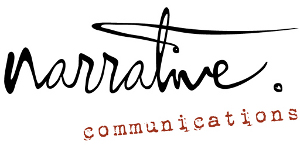After appearing in The Vancouver Province a few weeks ago, I posted a follow up blog post (Welcome to Generation C) in my own efforts to better understand my position on generations in the workplace. It was an interesting experience to go through; every time I would sit down with a friend or colleague, I would ask them what they thought of the question on deck:
Are different generations getting along in the workplace?
The responses were overwhelmingly positive – the people that I met with categorically saw a mix of generations as benefiting a company. Yes, they recognized that there were tensions, but most agreed with me when we looked at why those tensions were arising: a lack of understanding. So when The Bill Good Show approached me about speaking on their radio show (CKNW AM980), I jumped at the chance to continue this conversation with my community.

Listen live here: https://www.narrativecommunications.com/wp-content/uploads/Bill_Good_Show.mp3
When I started Narrative Communications, it was because I knew that storytelling had the power to revolutionalize branding and catalyze change when it came to how we communicate. Yet, I was focused on my own ‘Communications’ lens of website content, social media strategy, marketing materials, press releases…it was, after all, what I knew.
So when this conversation around ‘Generations in the workplace’ started happening around me, I reflected on what it all meant and realized that this was what storytelling was all about – seeing similarities in our differences. Isn’t that what people lack when they say things like “Young people today don’t have any work ethic”, or “Those Boomers ruined it for the rest of us”. They are positioning themselves ‘against’ another group – they are creating the Other and as we all know, the Other is rarely painted in an accurate light. Sweeping statements can be detrimental to the way we see the world, and the way that we move forward as a society.
Now imagine a world where instead of jumping to conclusions and lumping an entire age group into one quick-witted stereotype we actually sat down, shared our story, and listened to each other. What would happen then? What would it look like if a woman in her 60s sat down with a woman in her 20s and listened to what life looked like for her, and vice versa. Perhaps they would catch a glimpse of themselves or someone they know, perhaps they would pause the next time a disagreement ensued, perhaps they would laugh at how that’s probably what they would have done 4o years in the past or in the future.
Perhaps.
That’s the beauty of storytelling; it is a world full of possibilities.
